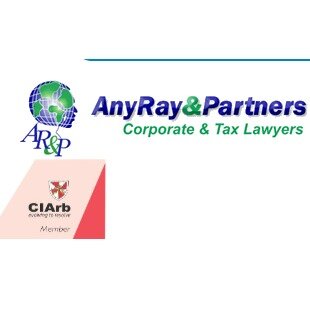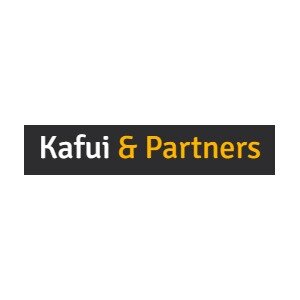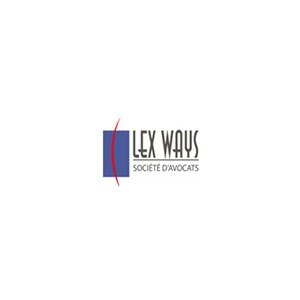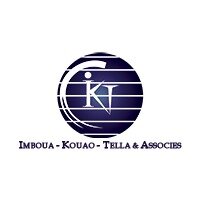Best Water Law Lawyers in Ivory Coast
Share your needs with us, get contacted by law firms.
Free. Takes 2 min.
Or refine your search by selecting a city:
List of the best lawyers in Ivory Coast
About Water Law in Ivory Coast
Water Law in Ivory Coast encompasses the rules, regulations, and policies that govern the management, use, and protection of water resources throughout the country. These laws aim to ensure sustainable access to clean water for domestic, agricultural, and industrial use. With increasing pressure on water resources due to population growth and climate change, the legal framework surrounding water in Ivory Coast is evolving to address new challenges and to ensure the equitable distribution and responsible management of this vital resource.
Why You May Need a Lawyer
There are many circumstances in which individuals and businesses may require legal assistance related to Water Law in Ivory Coast. For example, disputes can arise concerning water usage rights between neighbors, communities, or commercial entities. Landowners may encounter issues related to access to water or the legal implications of water pollution resulting from industrial activities. Large-scale agricultural operations often need permits or must adhere to regulations on irrigation and drainage. Environmental concerns, such as contamination or overuse of rivers and lakes, can lead to legal actions or require representation before administrative bodies. In all these scenarios, a lawyer can help clarify rights and obligations, assist with the necessary documentation, and represent clients in negotiations or court.
Local Laws Overview
The principal legislative instrument governing water resources in Ivory Coast is the Water Code. This law sets out the legal regime for water ownership, utilization, and protection. It establishes that water is a public good under the stewardship of the state, although specific rights of use may be granted to persons or entities. Key aspects include:
- Permitting requirements for the extraction or use of surface and groundwater
- Regulations against the pollution or degradation of water sources
- Obligations for environmental protection and the rehabilitation of contaminated sites
- Standards for potable water supply, sanitation, and wastewater management
- Rules governing dispute resolution among water users
Certain sectors, like agriculture and industry, are subject to additional controls regarding water usage and treatment. Local customs may also play a role, especially in rural areas where community management of water sources is common. Compliance with all applicable laws is essential to avoid penalties or complicated legal disputes.
Frequently Asked Questions
What is meant by Water Law in Ivory Coast?
Water Law refers to the body of legal principles regulating the use, management, and protection of water resources in Ivory Coast.
Who owns water resources in Ivory Coast?
All water resources in the country are considered public property under the control of the state, according to the Water Code.
Do I need a permit to use water from a river or well?
In most cases, any significant extraction or use of surface or groundwater requires prior authorization from the relevant authorities.
What should I do if my water source is polluted by a neighbor or company?
You should report the issue to local environmental authorities. Consulting a lawyer can help you understand your rights and possible remedies.
Can communities manage their own water resources?
Yes, local communities often play a role in managing shared water sources, though their authority is subject to national laws and policies.
Are there restrictions on how much water I can use for irrigation?
Yes, water use for agricultural purposes is regulated and may be subject to quotas or permits to ensure sustainable management.
What are the penalties for breaking Water Law regulations?
Penalties can include fines, the suspension of water use rights, mandatory cleanup of pollution, or even criminal prosecution in severe cases.
How are water disputes resolved?
Water disputes may be settled through administrative procedures, mediation, or, when necessary, through the courts.
What government agencies oversee Water Law?
The Ministry of Water and Forests, in cooperation with other agencies such as the National Water Office, regulates and manages water laws in Ivory Coast.
How can a lawyer help with Water Law matters?
A lawyer can assist with understanding regulatory requirements, obtaining permits, drafting agreements, handling disputes, and representing clients before courts or government agencies.
Additional Resources
If you need further information or support related to Water Law, the following organizations and governmental bodies may be helpful:
- Ministry of Water and Forests (Ministère des Eaux et Forêts)
- National Water Office (Office National de l’Eau Potable)
- Ministry of Environment and Sustainable Development
- Local municipal authorities overseeing water supply and sanitation
- Civil society groups focusing on water and environmental protection
Next Steps
If you require legal assistance related to Water Law in Ivory Coast, start by organizing all documents and information relevant to your situation. Consider consulting with a qualified lawyer who specializes in environmental or water law matters. You can search for legal professionals through local bar associations or legal directories. If your issue involves a government agency, reach out to the appropriate office for guidance on procedures and documentation. Finally, remain proactive in following up on your case and stay informed about your rights and responsibilities under Ivorian Water Law.
Lawzana helps you find the best lawyers and law firms in Ivory Coast through a curated and pre-screened list of qualified legal professionals. Our platform offers rankings and detailed profiles of attorneys and law firms, allowing you to compare based on practice areas, including Water Law, experience, and client feedback.
Each profile includes a description of the firm's areas of practice, client reviews, team members and partners, year of establishment, spoken languages, office locations, contact information, social media presence, and any published articles or resources. Most firms on our platform speak English and are experienced in both local and international legal matters.
Get a quote from top-rated law firms in Ivory Coast — quickly, securely, and without unnecessary hassle.
Disclaimer:
The information provided on this page is for general informational purposes only and does not constitute legal advice. While we strive to ensure the accuracy and relevance of the content, legal information may change over time, and interpretations of the law can vary. You should always consult with a qualified legal professional for advice specific to your situation.
We disclaim all liability for actions taken or not taken based on the content of this page. If you believe any information is incorrect or outdated, please contact us, and we will review and update it where appropriate.
Browse water law law firms by city in Ivory Coast
Refine your search by selecting a city.












